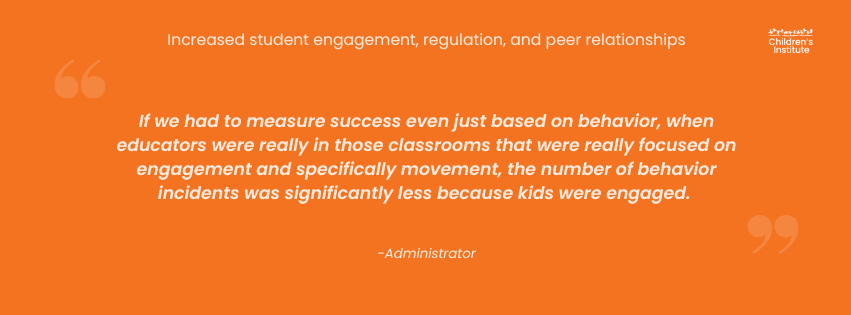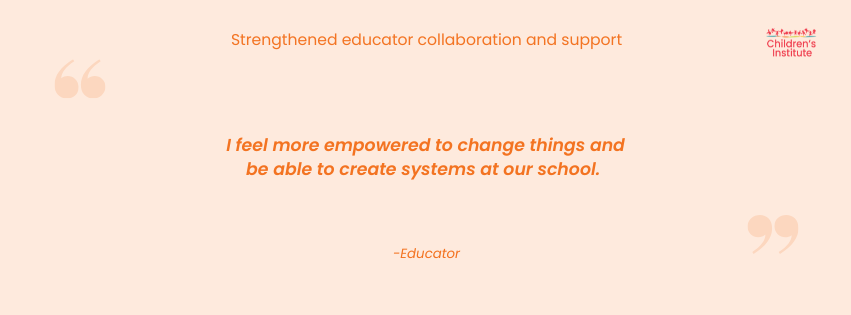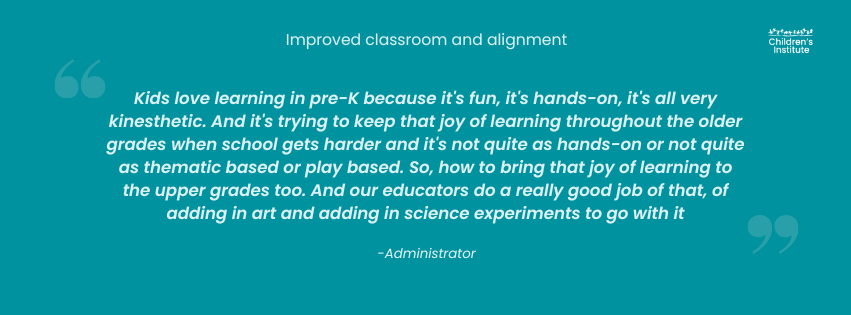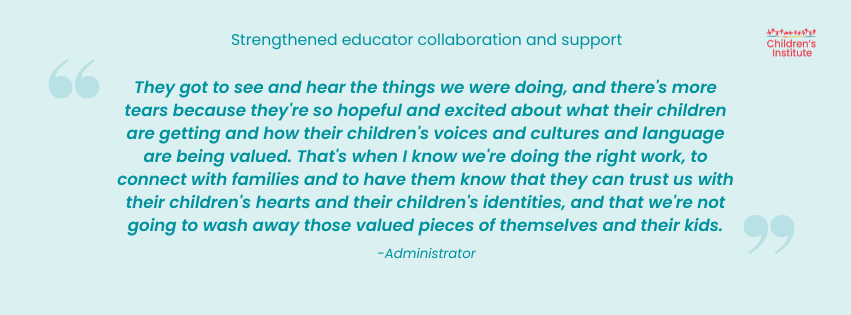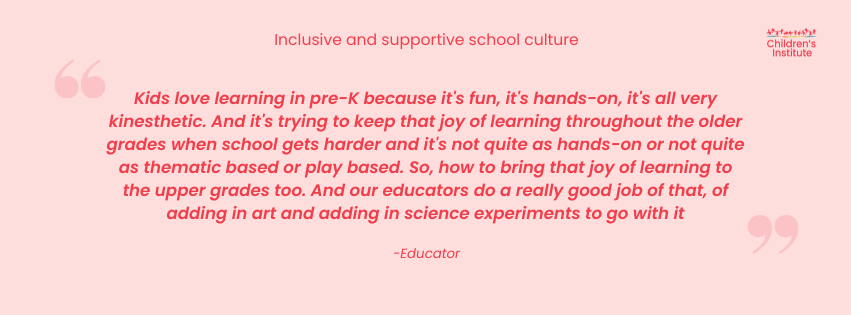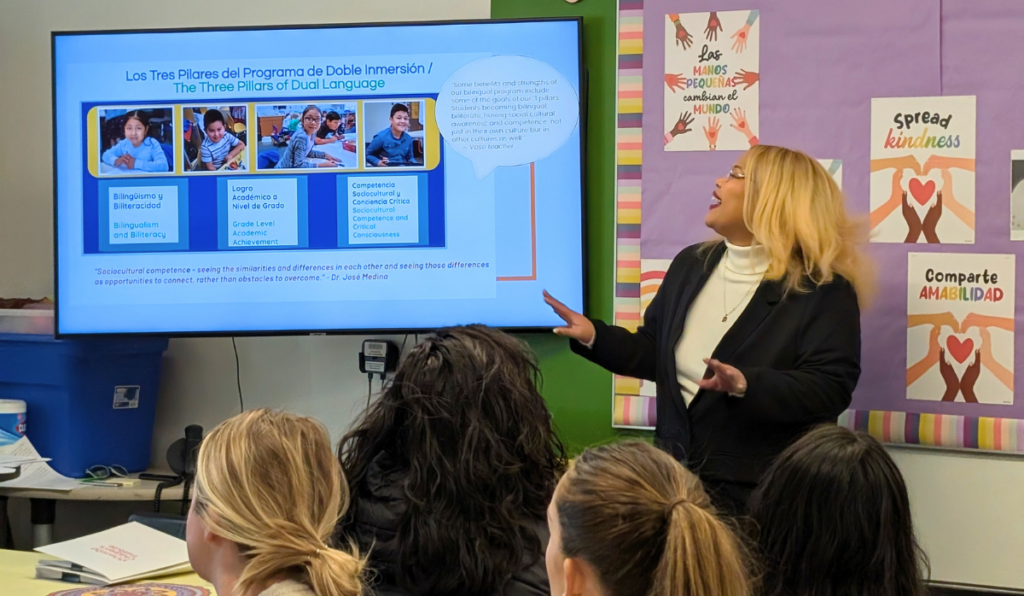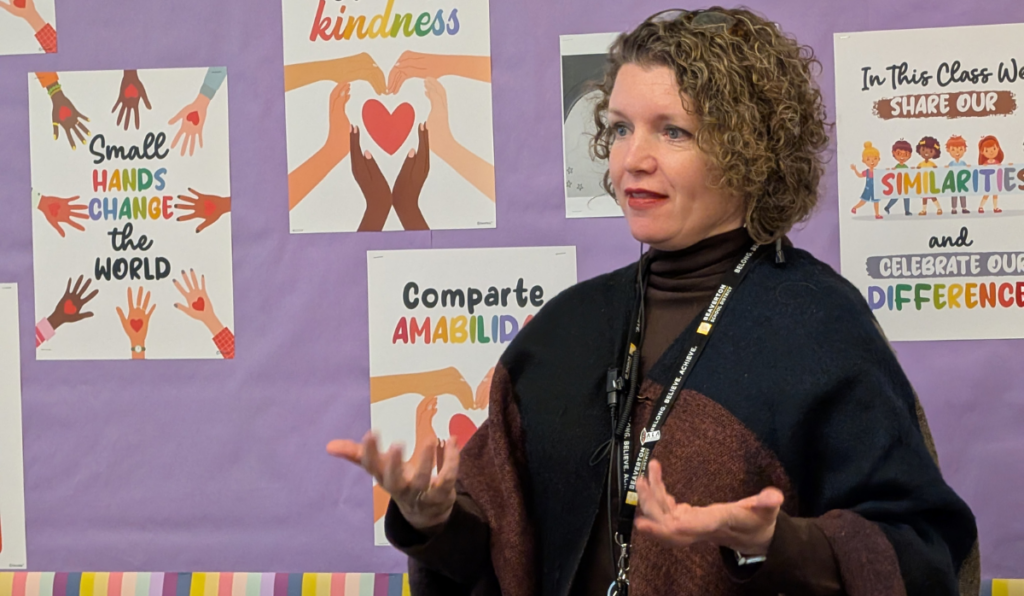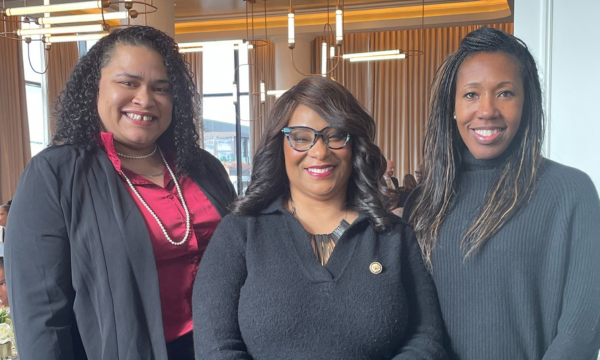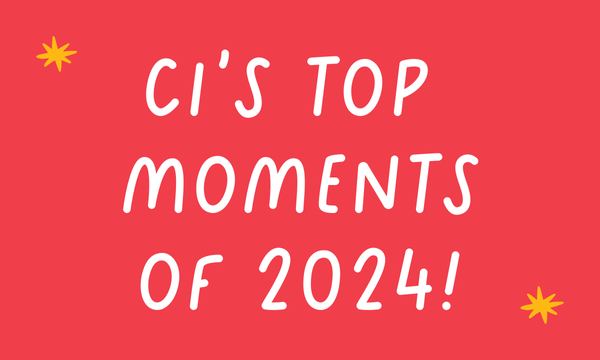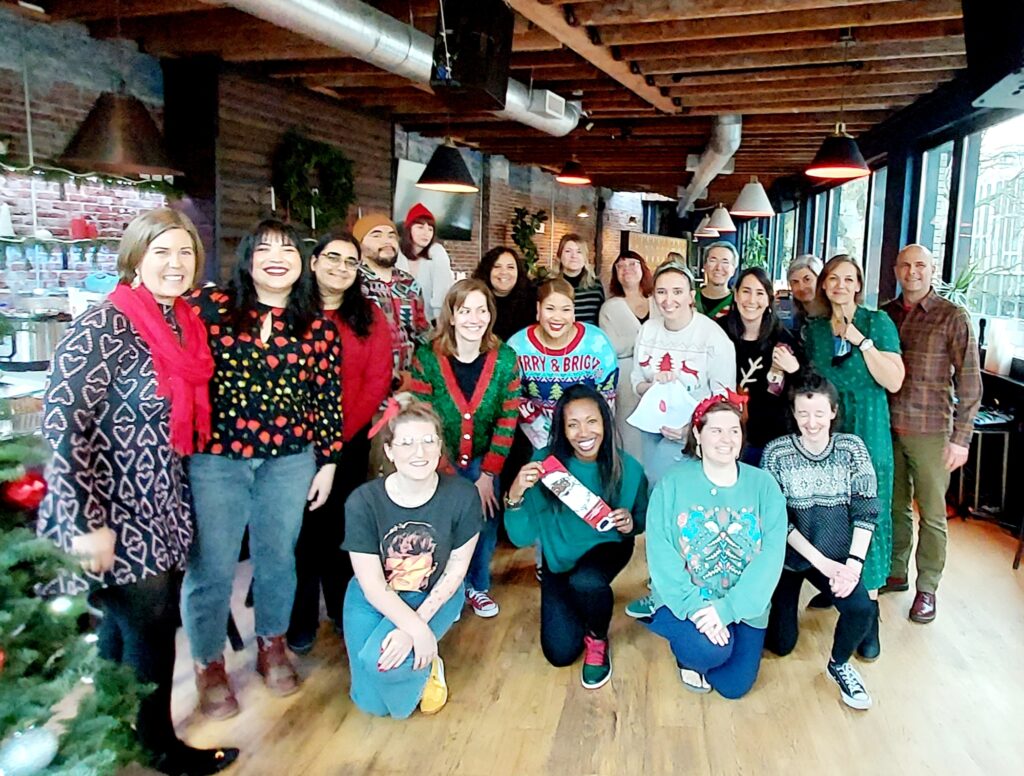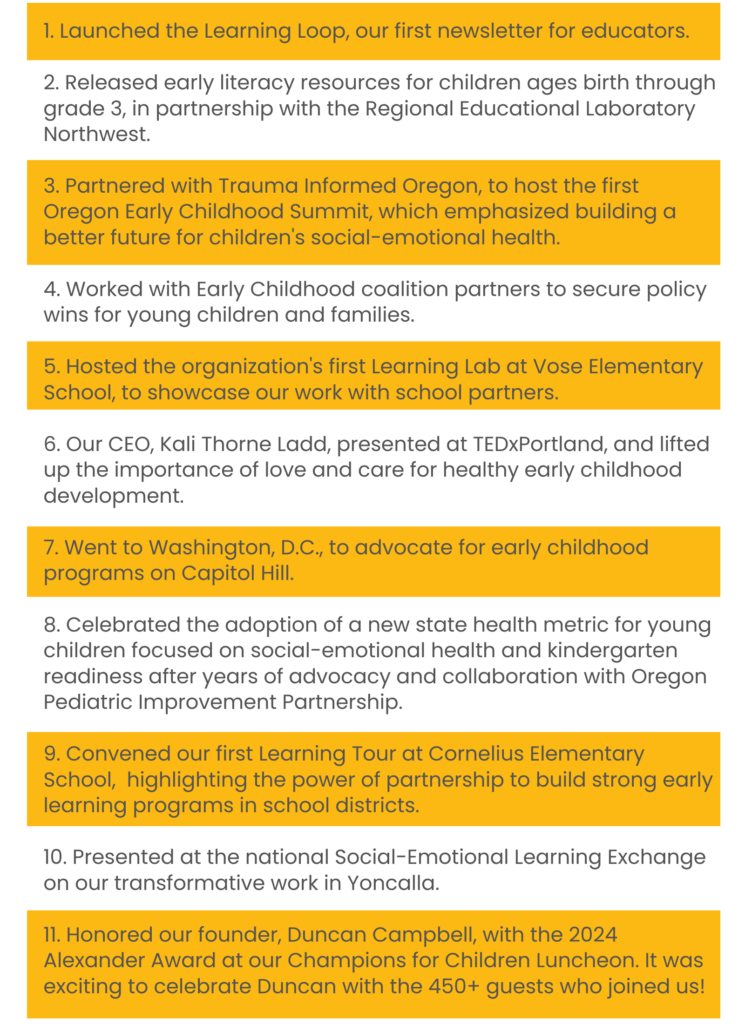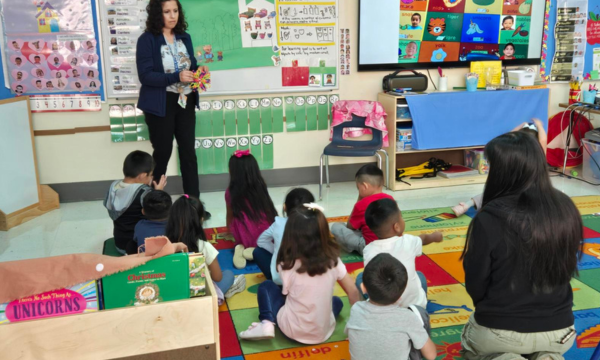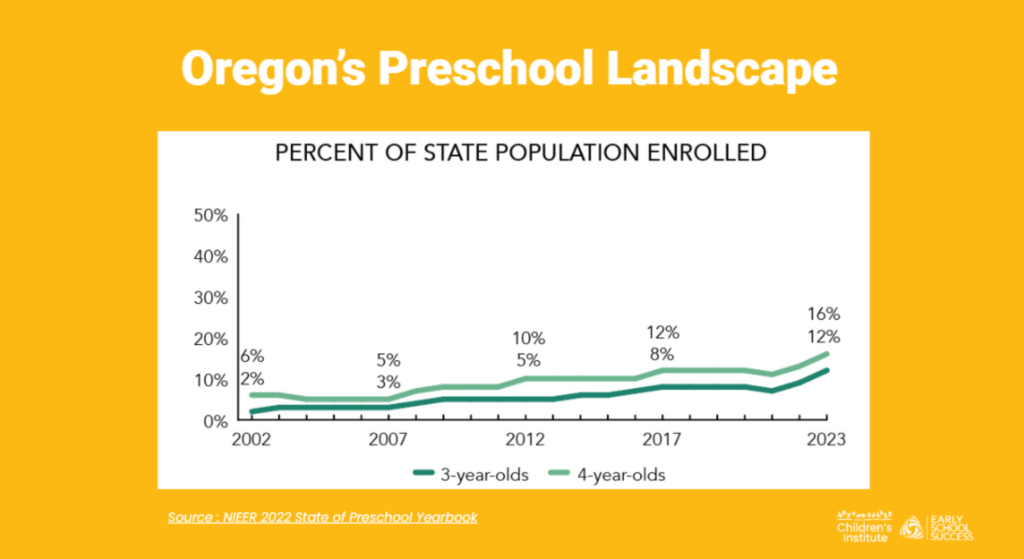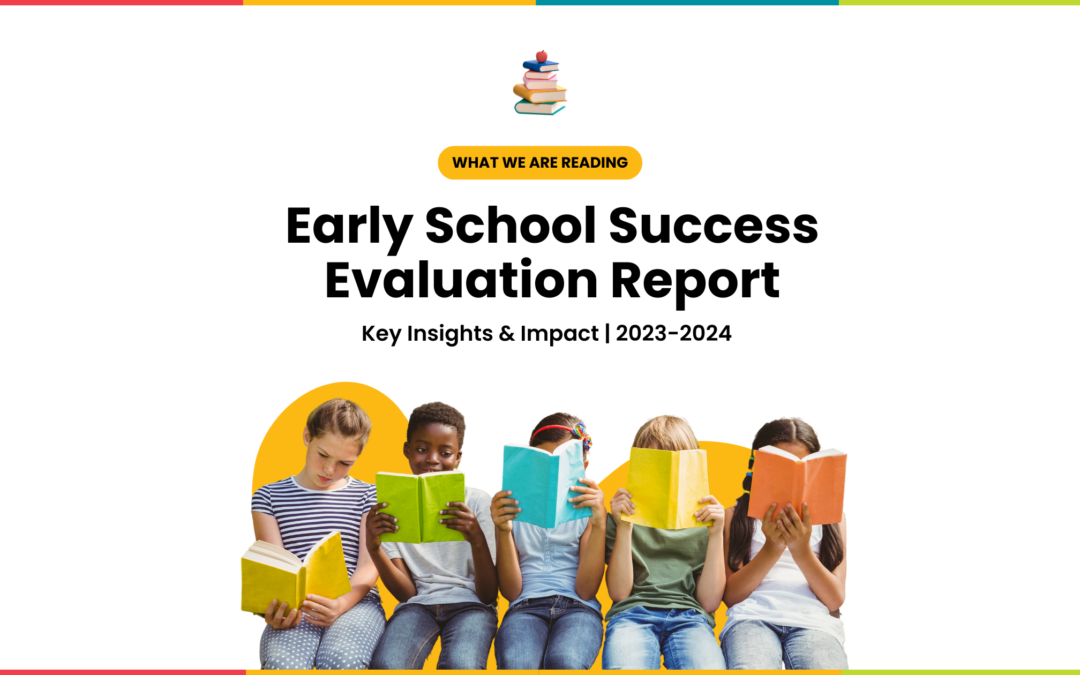
Early School Success 2023-2024 Evaluation Report: Key Insights & Impact
What is Early School Success?
At Children’s Institute, we believe that every child deserves a strong start in school. In 2019, Children’s Institute launched the Early School Success (ESS) initiative to help Oregon schools create smooth and supportive learning experiences for students from preschool through fifth grade. Five years after its implementation, we collaborated with Education Northwest to complete an evaluation and we are excited to share what we’ve learned about how ESS is improving classrooms, supporting teachers, and helping students thrive.
Overview
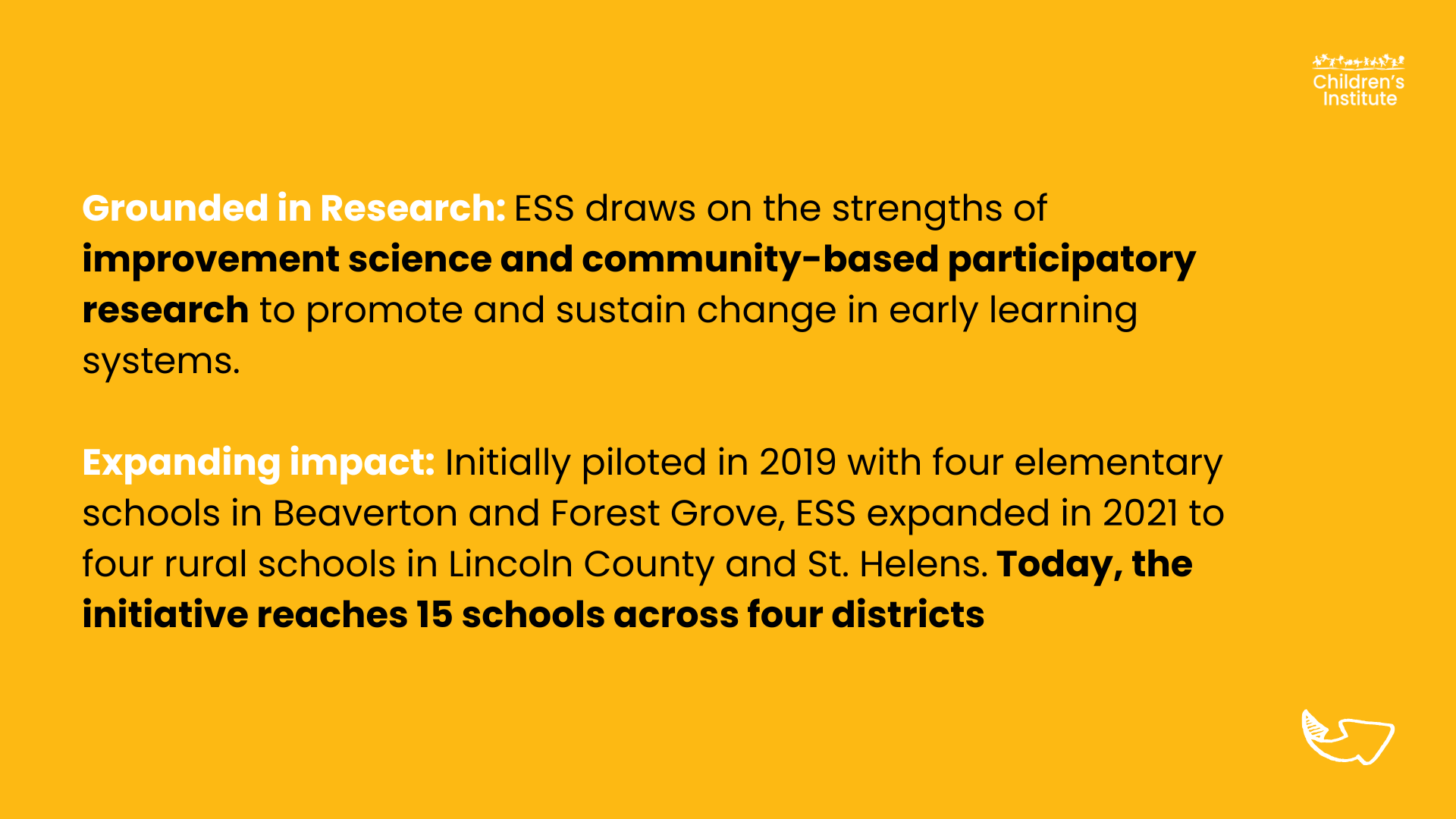
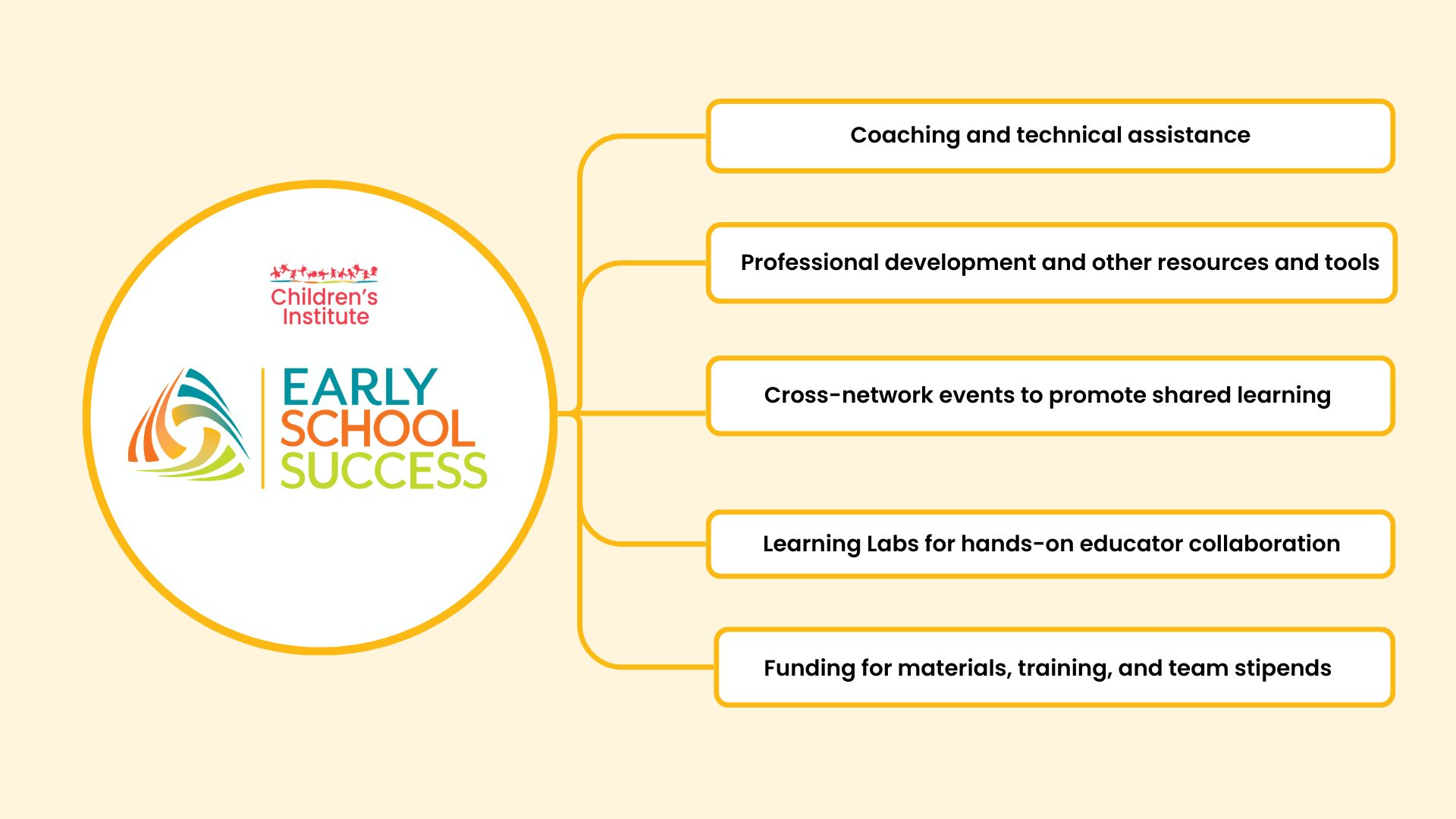
About the Evaluation Report
Purpose
The Early School Success evaluation examined:
- How ESS is implemented across participating districts and schools.
- Educator and administrator perspectives on its benefits for student engagement, systemic change, and instructional alignment.
- Opportunities for growth and expansion to ensure long-term success.
Methodology
The evaluation used a mixed-methods approach, combining:
- Quantitative data analysis to measure student engagement and instructional impact.
- Qualitative insights from interviews and focus groups with educators, administrators, and ESS implementation teams.
- Case studies of implementation across different school contexts
Key Findings
The report’s key findings show that Early School Success—through evidence-based strategies, cross-district collaboration, and professional development—has led to measurable improvements in early learning environments. The outcomes below highlight how ESS has supported positive change for students, educators, and school communities.
Increased student engagement, regulation, and peer relationships
Educators observed greater student engagement while implementing ESS strategies like playful inquiry, loose parts, and movement-based learning. These approaches supported academic growth in vocabulary, oral language, writing, and math while also fostering social-emotional development. Students who previously faced challenges became more engaged, built confidence, and strengthened peer relationships. Administrators noted that ESS classrooms promote problem-solving and a sense of belonging, contributing to fewer behavioral incidents.
Strengthened educator collaboration and support
Educators reported feeling more confident and appreciating how their professional expertise was honored and valued. The ESS framework encouraged risk taking, skill-building, and teamwork, creating a culture of trust and shared learning. Educators also embraced an inquiry-based mindset, making small but meaningful shifts in their teaching practices.
Improved classroom instruction and alignment
ESS teams that included educators across grade levels was integral in expanding successful strategies, strengthening instructional alignment from preschool through elementary grades. Educators elevated playful inquiry as an equity-driven practice, sparking deeper conversations about culturally responsive teaching. Districts strengthened alignment from preschool through fifth grade by expanding professional learning opportunities and integrating ESS insights into broader curriculum discussions and equity initiatives.
Stronger Family-School Partnerships
ESS strategies helped deepen connections between schools and families. As students became more engaged, families reported greater trust and partnership with educators. Schools introduced new approaches like empathy interviews, positive notes sent home, and learning activity kits to foster a home-school connection. One school reported a notable increase in attendance at family engagement events, and an administrator reflected on how powerful it was for parents to better understand their children’s experiences and share their own goals.
Inclusive and supportive school culture
ESS has helped cultivate a school culture centered around joy, equity, and inclusion. Educators applied an equity lens to data collection, using insights to tailor strategies for students adjusting to new cultural and linguistic environments. Many shared that ESS has broadened their perspective on learning, enabling them to better support students who may not have had positive school experiences in the past.
Next steps
The 2023-24 ESS evaluation highlights meaningful progress in student engagement, instructional quality, and educator collaboration. While there is more work ahead, these early successes underscore the value of intentional, research-based strategies to strengthen early learning. This progress reflects the commitment of educators, families, and school leaders. As the ESS initiative evolves, we will continue to build on this momentum to ensure early learning systems remain responsive, equitable, and student-centered. Together, we are laying the foundation for every child to get the strong start they deserve!

